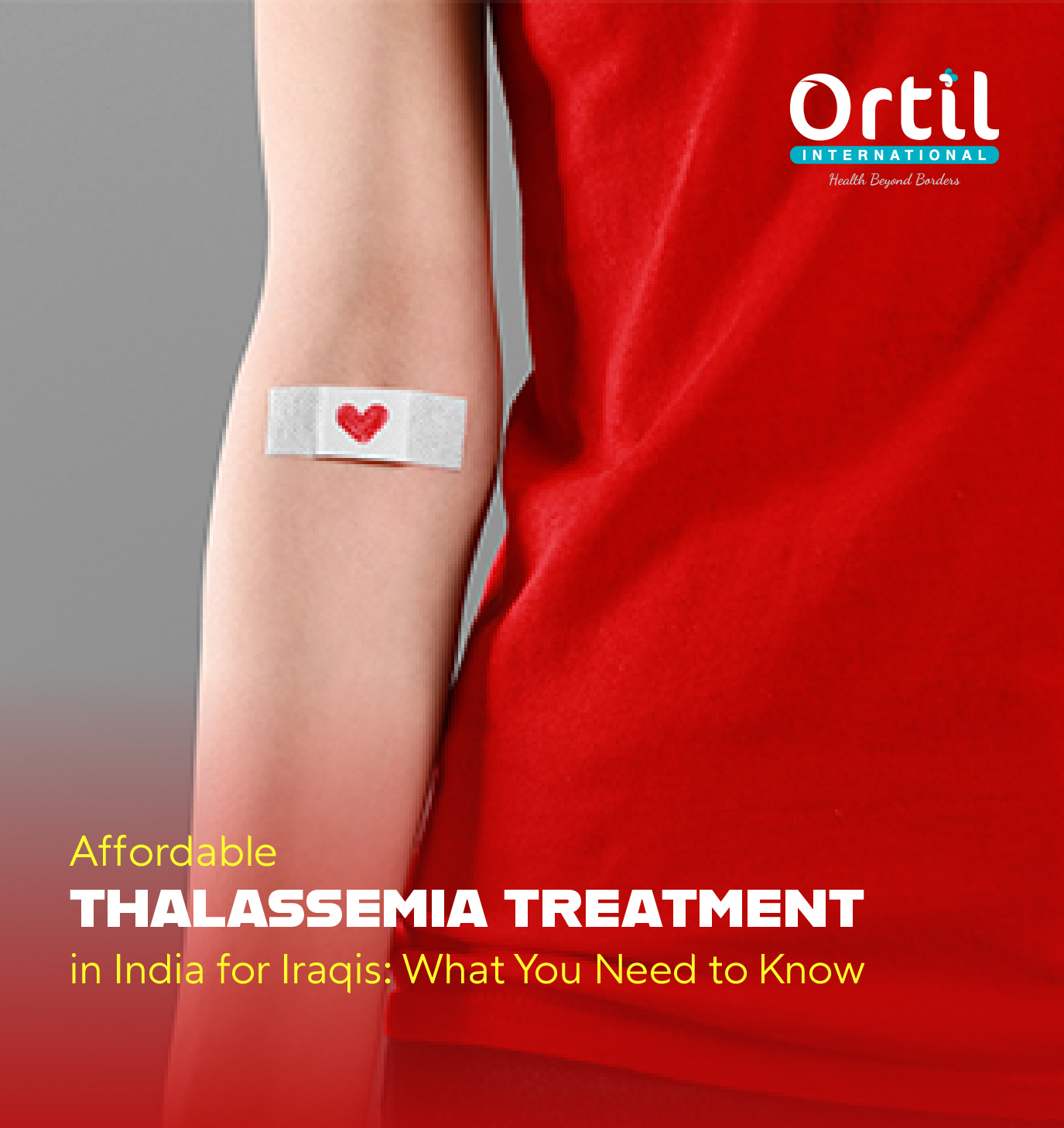Medical Tourism for Sickle Cell Anaemia: India as a Destination for Nigerian Patients
Summary
Sickle cell Anaemia is a life -threatening genetic blood disorder that affects millions, particularly in Nigeria. With India emerging as a global health centre, Nigerian patients are increasingly choosing Indian hospitals for effective, accessible and advanced treatment of sickle cell anaemia. This guide provides detailed information on treatment options, costs, survival rates and support available to Nigerian citizens seeking treatment in India.
Introduction
Sickle cell anaemia is predominant in Nigeria, impacting a significant portion of the population. Due to limitations in advanced care, many Nigerians exploit international treatment options. India has become a trusting destination for citizens of Nigeria due to their world -class hospitals, experienced doctors, and affordable health packages adapted to international patients.
Understanding Sickle Cell Anaemia Treatment
Sickle Cell Anaemia is caused by abnormal haemoglobin, leading to distorted red blood cells. These cells block blood flow, causing severe pain, organ damage, and infections. For patients in Nigeria, efficient, effective and timely treatment is crucial to increase quality of life and for improving the chances of survival.
What is Sickle Cell Anaemia Treatment
The treatment of anaemia of sickle cells involves a combination of medicines, blood transfusions and healing procedures such as bone marrow transplantation (BMT). Many patients from Nigeria also seek genetic therapy tests and advanced care solutions, especially when Nigeria treatments are limited.
Types of Sickle Cell Anaemia Treatment
Treatment options available for Nigeria patients include:
-
“Hydroxyurea” is a type of medicine which helps to decrease pain crises.
-
Blood transfusions to control anaemia and avoid strokes.
-
Bone Marrow/Stem Cell Transplant, which is curative, particularly when done in India.
-
Gene therapy, under clinical trials, which has the potential for Nigeria patients.
Who Needs a Sickle Cell Anaemia Treatment
Nigerian patients diagnosed with moderate to severe symptoms, including episodes of frequent pain in organs or complications such as stroke, are ideal candidates for treatment. Nigerian children usually benefit more with early intervention, especially through bone marrow transplantation.
Pre-Procedure (Preparation Phase)
Before treatment in India, Nigerian patients undergo:
-
Genetic matching (especially for BMT)
-
Blood tests and imaging
-
Travel and visa arrangements
-
Pre-counselling on treatment steps
Post-Procedure (Recovery and Follow-Up Phase)
Nigerian patients are advised:
-
To stay in India for follow-up for 1–3 months post-treatment
-
Regular medication, including immunosuppressant’s if BMT is done
-
On-going communication with doctors via telemedicine once back in Nigeria
Why Should You Choose India as a best option for Sickle Cell Anaemia Treatment
India offers advanced technology, highly experienced haematologists, and globally accredited hospitals at a fraction of the cost compared to Western nations. Many Nigeria patients have already benefited from India's excellence in care.
Top Hospitals in India for Sickle Cell Anaemia Treatment
Nigerian patients often choose the following hospitals:
These hospitals cater specifically to international patients, including those from Nigeria.
Cost and Expenses associated with Sickle Cell Anaemia Treatment in India
Cost Components
-
Pre-transplant Evaluation and Tests: Nigeria patients pay approximately $1,000–$2,000 for diagnostics.
-
Treatment Procedure and Hospital Stay: Bone Marrow Transplant cost in India for Nigeria patients ranges between $25,000–$40,000.
-
Post-transplant Medications and Follow-up Care: Nigerian patients may spend $2,000–$4,000 on medications and consultations.
Total Estimated Cost
The total treatment cost for Nigeria patients in India ranges from $28,000 to $46,000, depending on hospital and patient condition.
Cost Comparison
|
India
|
$28000 – 46000
|
|
USA
|
$150000 – 250000
|
|
UK
|
$120000 – 200000
|
Treatment Journey for Nigerian Patients
-
Initial consultation via video call
-
Visa invitation from the Indian hospital
-
Travel and local accommodation planning
-
Hospital admission and treatment
-
Aftercare instructions are to be followed after discharge and return to homeland.
Survival Rates
The survival rate for Nigeria patients undergoing BMT in India is 80–90%, especially in younger patients with matched donors. Early intervention increases success.
Factors Influencing Success
-
Age and health of the patient
-
Availability of a matched donor
-
Timing of the transplant
-
Hospital and medical team’s experience
Challenges and Solutions
Challenges for Nigerian Patients:
-
Travel logistics
-
Visa approval delays
-
Financial planning
Solutions:
-
Assistance from medical tourism facilitators
-
Hospital visa support letters
-
Packages designed for Nigeria citizens
Tips for Nigerian Patients Planning Treatments in India
-
Begin early diagnosis
-
Use Nigeria-based facilitators for travel and accommodation
-
Keep medical reports ready and translated if needed
-
Book appointments before arrival
How we help
We help Nigerian patients with:
-
Free initial consultation
-
Choosing the right Indian hospital
-
Visa and Travel Support
-
Cost estimation and fund raising guidance
-
Local language translators and food arrangements
Legal and Ethical Considerations
All treatment procedures for Nigerian patients in India are conducted according to international medical ethics, legal donor matching, and informed consent. Nigerian patients are taught risks and outcomes to be expected
Recovery and Life after Treatment
Nigerian patients who receive treatment in India tend to resume normal life within a year. Their long-term follow-up is necessary, and Indian hospitals even offer telemedicine care after patients go back to Nigeria.
Conclusion
Sickle Cell Anaemia is still a serious threat, particularly in Nigeria. India is bringing hope in the form of advanced, affordable therapies. Proper planning can have Nigerian patients receive first-class care and be sent back home healthier and pain-free.
FAQs
Q1: Does Patients from Nigeria Qualify to receive free treatment in India?
A: Not totally free, but some Indian hospitals provide subsidized packages for Nigerian patients and fundraising assistance.
Q2: How long must Nigerian patients remain in India?
A: Usually 1–3 months, depending on treatment.
Q3: Is India safe for Nigeria medical tourists?
A: Yes. India is among the safest places for international medical tourists, including Nigeria patients.

















